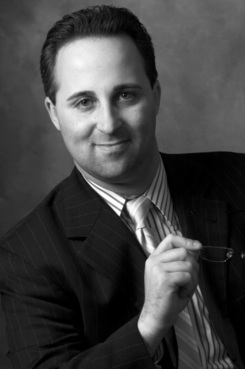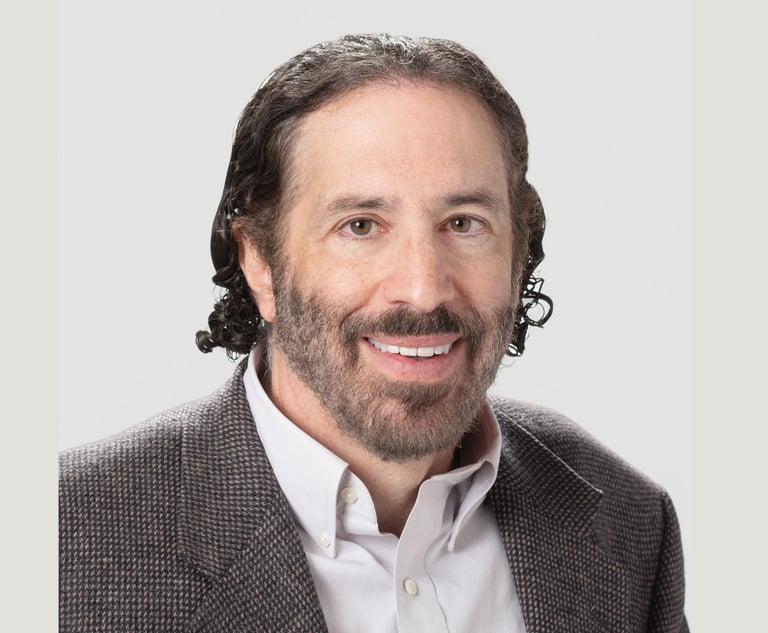Terminated Mid-Stream: What Are a Contingent Fee Lawyer's Remedies?
In Meyer Darragh v. Law Firm of Malone Middleman, 137 A.3d 1247 (Pa. 2016) (Meyer I), the court previously held predecessor counsel (i.e., Meyer) was not entitled to breach of contract damages against successor counsel (i.e., Middlemen) where a contract regarding counsel fees did not exist between the two firms.
March 22, 2018 at 02:37 PM
6 minute read
 Matthew Weisberg, Weisberg Law
Matthew Weisberg, Weisberg Law
In Meyer Darragh v. Law Firm of Malone Middleman, 137 A.3d 1247 (Pa. 2016) (Meyer I), the court previously held predecessor counsel (i.e., Meyer) was not entitled to breach of contract damages against successor counsel (i.e., Middlemen) where a contract regarding counsel fees did not exist between the two firms.
Thereafter, the Supreme Court granted discretionary review nunc pro tunc to determine whether Meyer is entitled to quantum meruit damages against Malone.
The court reversed the Superior Court and remanded to the trial court for reinstatement of the trial court's award of quantum meruit damages to Meyer against Malone.
The matter arose from a wrongful death lawsuit filed by the Eazor estate—the representation of the estate of Richard Eazor—arising from a motor vehicle accident. The estate was represented by attorney William Weiler Jr. who subsequently became associated with Meyer. Meyer attorneys worked on the Eazor litigation for 71.25 hours over a 19-month period when Weiler resigned from Meyer.
At the time of Weiler's resignation, it was understood that Meyer would continue as lead counsel in the Eazor litigation along with Weiler: Meyer would receive two-thirds of the attorney fees and Weiler would retain the one-third of the fees.
Weiler then became affiliated with Malone whereupon Meyer was discharged in favor of Malone. Meyer notified Malone that pursuant to its agreement with Weiler that Meyer was entitled to two-thirds of the contingent fee earned from the Eazor litigation. In response, Malone denied Meyer was entitled to any contingent fee, (“at best… quantum meruit …” was responded by Malone).
Malone settled the Eazor litigation for $235,000 receiving $67,000 in attorney fees (unexplained, 28.5 percent of the entire amount collected).
Meyer demanded from Malone two-thirds of the counsel fees generated by the settlement pursuant to its agreement with Weiler or, in the alternative, payment based on quantum meruit in the amount of $17,673.93 for the work it performed and costs incurred ($44,666.67: 66 percent versus $17,673.93: quantum meruit). Malone did not pay any portion of the fees it collected to Meyer.
In September 2010, Meyer filed suit against Malone for breach of contract damages as well as alternatively for quantum meruit. After a bench trial on stipulated facts, the trial court entered judgment in favor of Meyer's quantum meruit claim; the trial court denied relief on the breach of contract claim.
The Meyer I court held that Malone was not liable for breach of contract. Malone was not a party to Weiler's contract with Meyer. (“It is fundamental contract law that one cannot be liable for a breach of contract unless one is a party to that contract”).
In Meyer v. Malone, 166 A.3d 1236 (Pa. 2017) (Meyer II), the court granted allowance of appeal as to the following issue:
Whether the Superior Court erred in vacating the judgment of the Court of Common Pleas with respect to Meyer Darragh's quantum meruit claim when Meyer Darragh performed legal work and incurred expenses on behalf of the client and doing so would force Meyer Darragh to engage that client, who has already paid its legal fees in full, in litigation or allow Malone Middleman to be unjustly enriched?
Citing Meyer I, Meyer acknowledged there was no Pennsylvania appellate case expressly permitting an action in quantum meruit against successor counsel and that predecessor counsel may proceed only against the client on that theory. Likewise, Meyer observed that there is no precedent prohibiting quantum meruit against successor counsel.
The Supreme Court reiterated that a claim for damages in quantum meruit is fundamentally an equitable claim of unjust enrichment in which the party seeking recovery must demonstrate:
- Benefits conferred on defendant by plaintiff;
- Appreciation of such benefits by defendant; and
- Acceptance and retention of such benefits under such circumstances that would be inequitable for defendants to retain the benefit without payment of value.
In determining whether quantum meruit applies the focus is not on the intention of the parties but rather whether defendant has been unjustly enriched.
A client may terminate his relation with an attorney at any time, notwithstanding a contract for fees, but if he does so, thus making performance of the contract impossible, the attorney is not deprived of his right to recover on a quantum meruit theory the proper amount of the services which he has rendered.
Ultimately, in Meyer II, the Supreme Court held predecessor counsel may recover damages in quantum meruit against successor counsel in a contingent fee dispute but only where such claim is viable when the facts demonstrate unjust enrichment. The court reserved the right that a quantum meruit claim by predecessor counsel against a former client may also exist.
After nine years or so of litigation, predecessor counsel (e.g., Meyer) was entitled to recompense for what all the courts acknowledge was Meyer's significant contribution towards the ultimate resolution of the underlying litigation. That said, the quantum meruit fee still seems unfairly low.
Further, questions arise from both Meyer I and II:
- What if there had been a more specific contingent fee agreement language regarding termination, third-party beneficiary, and both of their relation to ultimate fees;
- What would have been Meyer's recompense if—as is common—the underlying litigation had reached a good faith settlement offer which was rejected by the underlying Plaintiff ultimately reduced or resulting in a defense award; and
- What would have been the outcome if Meyer had not—as is also common in contingent fee matters—kept its “billable hours”?
In all, after nine years or so of litigation, both Meyer decisions seem to foster litigation (both against successor counsel and against client), more client restrictive contingent fee agreements, and attorney v. client adversarial fee posturing at the initiation of a client relationship—realities that are far from what is desired.
Caveat emptor—not exactly the intended mantra of the contingent fee lawyer when meeting a new client or assuming a new partner: but certainly the reality.
Matthew B. Weisberg is the managing partner of Weisberg Law. He focuses his practice on consumer and individual rights throughout Pennsylvania and New Jersey. Weisberg Law represents victims of legal malpractice and other professional negligence resulting in financial injury, fraud, civil rights violations, consumer abuse and foreclosure actions.
This content has been archived. It is available through our partners, LexisNexis® and Bloomberg Law.
To view this content, please continue to their sites.
Not a Lexis Subscriber?
Subscribe Now
Not a Bloomberg Law Subscriber?
Subscribe Now
NOT FOR REPRINT
© 2025 ALM Global, LLC, All Rights Reserved. Request academic re-use from www.copyright.com. All other uses, submit a request to [email protected]. For more information visit Asset & Logo Licensing.
You Might Like
View All
Lackawanna County Lawyer Fails to Shake Legal Mal Claims Over Sex With Client
3 minute read
Pa. Superior Court Rules Pizza Chain Liable for Franchisee Driver's Crash
4 minute read
Patent Pending ... and Pending ... and Pending? Brace Yourself for Longer Waits
3 minute read
Boosting Litigation and Employee Benefits Practices, Two Am Law 100 Firms Grow in Pittsburgh
3 minute readTrending Stories
Who Got The Work
J. Brugh Lower of Gibbons has entered an appearance for industrial equipment supplier Devco Corporation in a pending trademark infringement lawsuit. The suit, accusing the defendant of selling knock-off Graco products, was filed Dec. 18 in New Jersey District Court by Rivkin Radler on behalf of Graco Inc. and Graco Minnesota. The case, assigned to U.S. District Judge Zahid N. Quraishi, is 3:24-cv-11294, Graco Inc. et al v. Devco Corporation.
Who Got The Work
Rebecca Maller-Stein and Kent A. Yalowitz of Arnold & Porter Kaye Scholer have entered their appearances for Hanaco Venture Capital and its executives, Lior Prosor and David Frankel, in a pending securities lawsuit. The action, filed on Dec. 24 in New York Southern District Court by Zell, Aron & Co. on behalf of Goldeneye Advisors, accuses the defendants of negligently and fraudulently managing the plaintiff's $1 million investment. The case, assigned to U.S. District Judge Vernon S. Broderick, is 1:24-cv-09918, Goldeneye Advisors, LLC v. Hanaco Venture Capital, Ltd. et al.
Who Got The Work
Attorneys from A&O Shearman has stepped in as defense counsel for Toronto-Dominion Bank and other defendants in a pending securities class action. The suit, filed Dec. 11 in New York Southern District Court by Bleichmar Fonti & Auld, accuses the defendants of concealing the bank's 'pervasive' deficiencies in regards to its compliance with the Bank Secrecy Act and the quality of its anti-money laundering controls. The case, assigned to U.S. District Judge Arun Subramanian, is 1:24-cv-09445, Gonzalez v. The Toronto-Dominion Bank et al.
Who Got The Work
Crown Castle International, a Pennsylvania company providing shared communications infrastructure, has turned to Luke D. Wolf of Gordon Rees Scully Mansukhani to fend off a pending breach-of-contract lawsuit. The court action, filed Nov. 25 in Michigan Eastern District Court by Hooper Hathaway PC on behalf of The Town Residences LLC, accuses Crown Castle of failing to transfer approximately $30,000 in utility payments from T-Mobile in breach of a roof-top lease and assignment agreement. The case, assigned to U.S. District Judge Susan K. Declercq, is 2:24-cv-13131, The Town Residences LLC v. T-Mobile US, Inc. et al.
Who Got The Work
Wilfred P. Coronato and Daniel M. Schwartz of McCarter & English have stepped in as defense counsel to Electrolux Home Products Inc. in a pending product liability lawsuit. The court action, filed Nov. 26 in New York Eastern District Court by Poulos Lopiccolo PC and Nagel Rice LLP on behalf of David Stern, alleges that the defendant's refrigerators’ drawers and shelving repeatedly break and fall apart within months after purchase. The case, assigned to U.S. District Judge Joan M. Azrack, is 2:24-cv-08204, Stern v. Electrolux Home Products, Inc.
Featured Firms
Law Offices of Gary Martin Hays & Associates, P.C.
(470) 294-1674
Law Offices of Mark E. Salomone
(857) 444-6468
Smith & Hassler
(713) 739-1250





